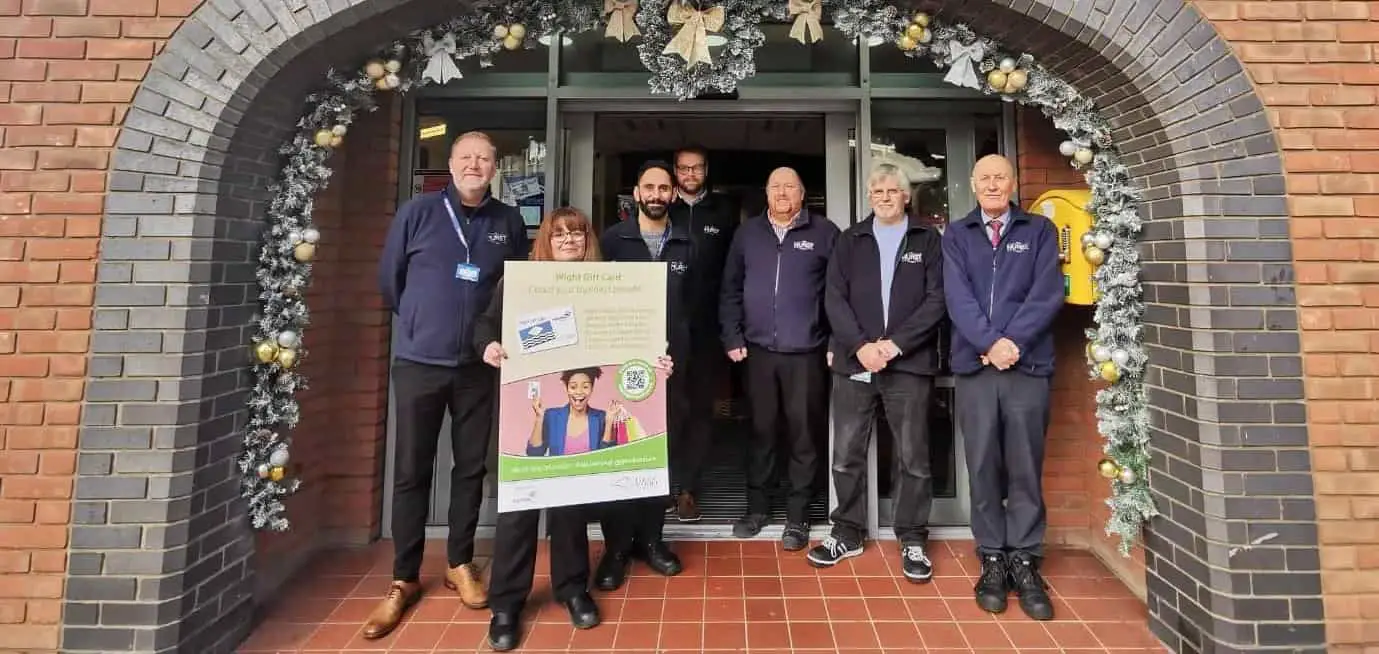The future of a scheme which supports Isle of Wight businesses is looking uncertain.
Town, parish and community councils are being asked to financially support the Wight Gift Card (WGC) to keep it going.
The WGC was introduced by the Isle of Wight council in October 2020 as a way of rebooting the Island’s economy after the first wave of the Covid pandemic. In December 2022, it was praised by retailers as being a valuable support mechanism.
Can be spent with 140 Island businesses
Like a gift voucher, the WGC can be spent in nearly 140 Island shops, restaurants, beauty spas or hotels, either online or in-store.
More than 4,230 have been sold, as of June 2023, in the years it has been running and nearly £900,000 had been loaded onto those cards to be spent at Island retailers, cafes, beauty spas, attractions or hotels.
£10,500 a year needed for three-year programme
However, in a letter to the smaller councils, the Isle of Wight council’s former assistant regeneration director Ashley Curzon explained the contract with those behind the WGC, Town and City Gift Cards / Miconex, was coming to an end.
He said to continue the WGC, it needs £10,500 a year for a three-year programme, with the cash coming from a range of sponsors.
It was hoped each sponsor could pay £1,500 a year.
How the money would be used
The money would be used to set up and re-design the physical cards; support with banking fees and payment processing fees and marketing.
If it was agreed the large stock of display cards with the branding of the previous sponsors could still be used in the years to come, it would lower the total cost needed from each sponsor to around £1,285 a year.
Current cards still valid
The Isle of Wight council has confirmed all WGCs are still valid while discussions are ongoing and if it were to be discontinued there would be a notice period for users.
Newport and Carisbrooke Community Council was approached by the Isle of Wight council and discussed the matter at its meeting earlier in the month.
The community council decided to find out more information about what was being asked before it made a decision.
This article is from the BBC’s LDRS (Local Democracy Reporter Service) scheme, which News OnTheWight is taking part in. Some alterations and additions may have been made by OnTheWight. Ed





